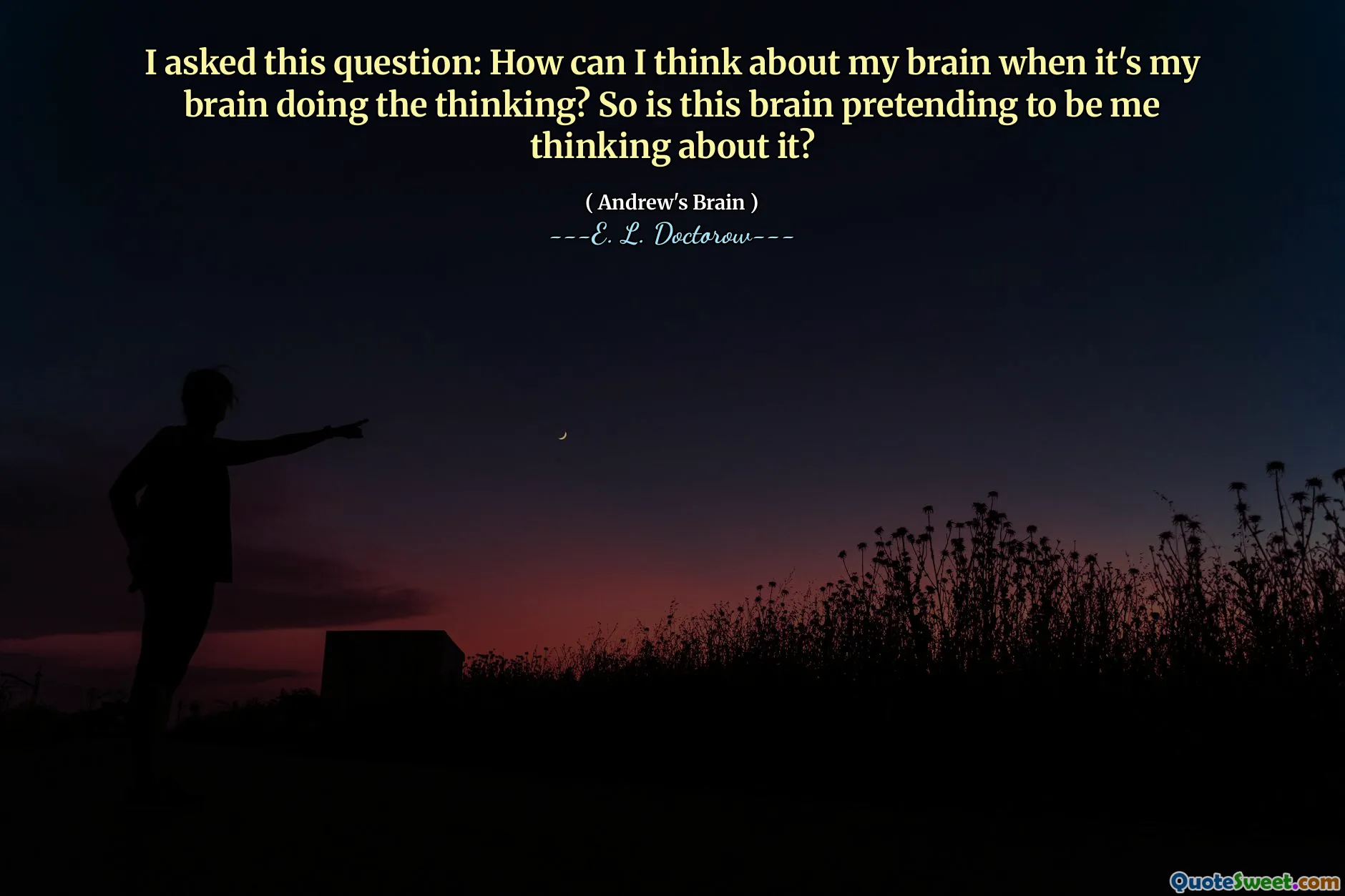
I asked this question: How can I think about my brain when it's my brain doing the thinking? So is this brain pretending to be me thinking about it?
This quote delves into the profound question of consciousness and self-awareness, exploring the difficult paradox of introspection. It highlights the peculiar situation where the very organ responsible for thinking—the brain—is also the entity trying to understand and observe itself. This creates a recursive dilemma: how can one objectively examine the workings of something inherently subjective? The question raises essential issues about the nature of the mind, perception, and identity. It suggests that our self-awareness might be limited by the very processes that constitute it; perhaps the brain is both the observer and the observed in an ongoing loop. This tension can lead to feelings of confusion or even existential doubt about the separability of the self from its biological substrate. It also touches on philosophical debates about whether the mind can truly be understood internally or if such understanding is inherently limited. From a scientific perspective, studying the brain involves external observation, but when it comes to subjective experience or consciousness, we are faced with an introspective barrier—how can we fully grasp our own mental processes? This quote prompts us to reflect on the limits of self-knowledge and invites philosophical inquiry into the nature of the ego versus the neural mechanisms behind it. It encapsulates a universal curiosity about the essence of self and mind, reminding us that these questions are timeless and still largely unresolved.






